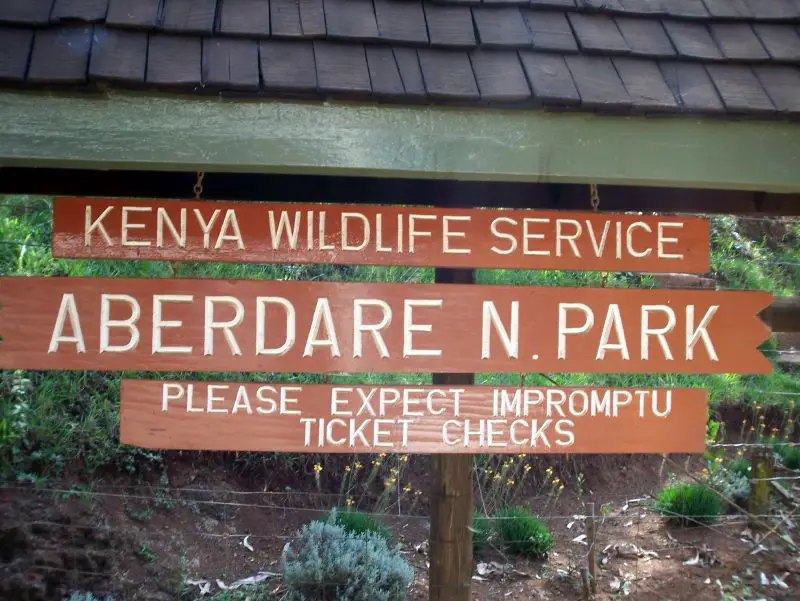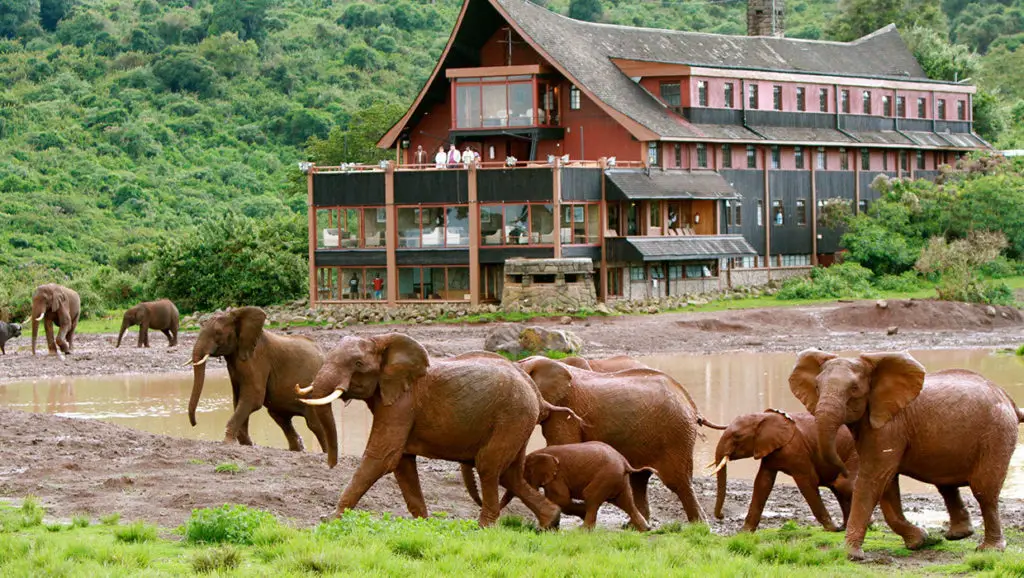Narok Town, the capital of Narok County in southwestern Kenya, is accessible by road from various major cities and towns. Located approximately 140 kilometers southwest of Nairobi, the town serves as a gateway to the famous Maasai Mara National Reserve.
Access to Narok Town is primarily by road, with no direct air or rail connections. The town’s strategic location along the Narok-Bomet highway and its proximity to popular tourist destinations make it an important transit point for both domestic and international travelers.
Where is Narok Town located?
Narok Town is situated:
- In southwestern Kenya
- Approximately 140 kilometers southwest of Nairobi
- Along the Narok-Bomet highway
- Near the border with Tanzania
- At the edge of the Great Rift Valley
What are the main routes to access Narok Town?
The primary routes to access Narok Town include:
- Nairobi-Narok Highway (A8): The main road connecting Nairobi to Narok
- Narok-Bomet Highway: Connecting Narok to western Kenya
- Narok-Maai Mahiu Road: An alternative route from Nairobi
- Narok-Mau Narok Road: Connecting northern parts of Narok County
- Narok-Sekenani Gate Road: Leading to Maasai Mara National Reserve
How long does it take to travel from Nairobi to Narok Town?
The travel time from Nairobi to Narok Town varies depending on the mode of transport and road conditions:
- By private car: Approximately 2.5 to 3 hours
- By public bus or matatu: 3 to 4 hours
- During peak tourist seasons or heavy traffic: Travel time may increase
What public transportation options are available to reach Narok Town?
Public transportation options to Narok Town include:
- Buses: Regular services from Nairobi and other major towns
- Matatus (minibuses): Frequent services from nearby towns and villages
- Taxis: Available for hire, especially from Nairobi
Some popular bus companies serving Narok Town:
- Easy Coach
- Guardian Bus Services
- Transline Classic
Is there an airport in Narok Town?
Narok Town does not have a commercial airport. The nearest airports are:
- Jomo Kenyatta International Airport (NBO) in Nairobi: Approximately 140 km away
- Wilson Airport in Nairobi: For domestic flights, about 130 km away
- Kisumu International Airport: For those coming from western Kenya, about 230 km away
Some safari lodges in the Maasai Mara area have private airstrips, but these are not typically used for accessing Narok Town directly.
How do road conditions affect access to Narok Town?
Road conditions can significantly impact access to Narok Town:
- The main Nairobi-Narok highway is generally in good condition
- Some secondary roads may be unpaved or in poor condition, especially during rainy seasons
- Heavy rains can cause temporary flooding or muddy conditions on some routes
- Ongoing road improvement projects may cause temporary delays
What are the options for getting around within Narok Town?
Within Narok Town, transportation options include:
- Matatus: For short trips within the town and to nearby areas
- Boda bodas (motorcycle taxis): Popular for quick, short-distance travel
- Taxis: Available for hire within the town
- Walking: Feasible for short distances within the town center
How does access to Narok Town compare to other nearby towns?
Here’s a comparison of access to Narok Town and some nearby towns:
| Aspect | Narok Town | Bomet | Mai Mahiu | Naivasha |
|---|---|---|---|---|
| Distance from Nairobi | 140 km | 230 km | 90 km | 90 km |
| Main access road | A8 Highway | B3 Highway | A8 Highway | A8 Highway |
| Public transport availability | High | Moderate | High | High |
| Nearest airport | Nairobi (140 km) | Kisumu (170 km) | Nairobi (90 km) | Nairobi (90 km) |
| Road condition to Nairobi | Good | Fair | Good | Excellent |
What challenges do travelers face when accessing Narok Town?
Travelers may encounter several challenges when accessing Narok Town:
- Traffic congestion: Especially during peak hours and tourist seasons
- Road safety concerns: Due to sometimes reckless driving on highways
- Limited public transport options: Particularly for reaching more remote areas
- Seasonal weather impacts: Heavy rains can affect road conditions
- Limited signage: Navigating can be challenging for first-time visitors
- Occasional wildlife on roads: Particularly when nearing Maasai Mara
How does tourism affect access to Narok Town?
Tourism significantly impacts access to Narok Town:
- Increased traffic during peak safari seasons (July to October, December to February)
- Higher demand for transportation services to and from Maasai Mara
- Improved road maintenance on main tourist routes
- Development of better infrastructure to support tourism
- Potential for overcrowding at certain times of the year
Are there any ongoing or planned infrastructure projects to improve access to Narok Town?
While specific current projects are not detailed in the search results, typical infrastructure improvements in such areas often include:
- Road expansion and rehabilitation projects
- Installation of better road signage and markers
- Development of bypass roads to reduce congestion
- Improvement of public transportation facilities
- Potential future plans for better connections to major cities
How do local communities benefit from improved access to Narok Town?
Improved access to Narok Town benefits local communities through:
- Enhanced economic opportunities due to easier trade and commerce
- Better access to healthcare facilities in the town
- Increased educational opportunities as transport to schools becomes easier
- Growth in tourism, leading to more job opportunities
- Easier access to government services located in the town
What role does Narok Town play as a transit point?
Narok Town serves as a crucial transit point:
- Gateway to Maasai Mara National Reserve
- Stopover for travelers heading to western Kenya
- Connection point between Nairobi and rural areas of Narok County
- Hub for local trade and commerce in the region
- Starting point for various safari and cultural tourism activities
How does the geography of the area affect access to Narok Town?
The geography around Narok Town impacts access in several ways:
- Located in the Great Rift Valley, which can present challenging terrain
- Surrounded by hilly areas, affecting road construction and maintenance
- Seasonal rivers and streams can cause flooding during rainy seasons
- Proximity to wildlife areas may lead to occasional animal crossings on roads
- Varied landscape contributes to scenic routes, attracting tourists
What safety considerations should travelers keep in mind when accessing Narok Town?
Travelers should consider the following safety aspects:
- Road safety: Adhere to speed limits and be cautious of other drivers
- Wildlife awareness: Especially when driving near Maasai Mara
- Weather conditions: Check forecasts, particularly during rainy seasons
- Vehicle preparation: Ensure vehicles are in good condition for the journey
- Travel timing: Avoid night driving when possible
- Cultural sensitivity: Respect local customs and traditions
How does access to Narok Town compare in different seasons?
Access to Narok Town varies seasonally:
| Season | Road Conditions | Traffic | Public Transport Availability |
|---|---|---|---|
| Dry Season (Jun-Oct, Jan-Feb) | Generally good | High, due to tourism | High |
| Short Rains (Nov-Dec) | May be slippery | Moderate | Moderate |
| Long Rains (Mar-May) | Can be challenging | Lower | May be reduced |
What future developments might improve access to Narok Town?
Potential future developments to improve access could include:
- Expansion of the main highways to accommodate increasing traffic
- Development of a regional airport to facilitate air travel
- Implementation of modern traffic management systems
- Introduction of high-capacity public transport options
- Integration of digital technologies for better journey planning and navigation
How does access to Narok Town impact its economic development?
Access to Narok Town significantly influences its economic development:
- Facilitates trade between Narok and other regions
- Supports the growth of the tourism industry
- Enables easier movement of goods and services
- Attracts investment due to improved connectivity
- Enhances opportunities for local businesses to expand their market reach
In conclusion, access to Narok Town, Kenya, is primarily through road networks, with the main Nairobi-Narok highway serving as the principal route. While the town lacks direct air or rail connections, its strategic location makes it an important transit point, especially for those heading to the Maasai Mara National Reserve.
The accessibility of Narok Town varies with seasons and is influenced by factors such as road conditions, tourism patterns, and ongoing infrastructure developments. As a key economic and administrative center for Narok County, continued improvements in access are likely to play a crucial role in the town’s future development and its significance as a regional hub.



